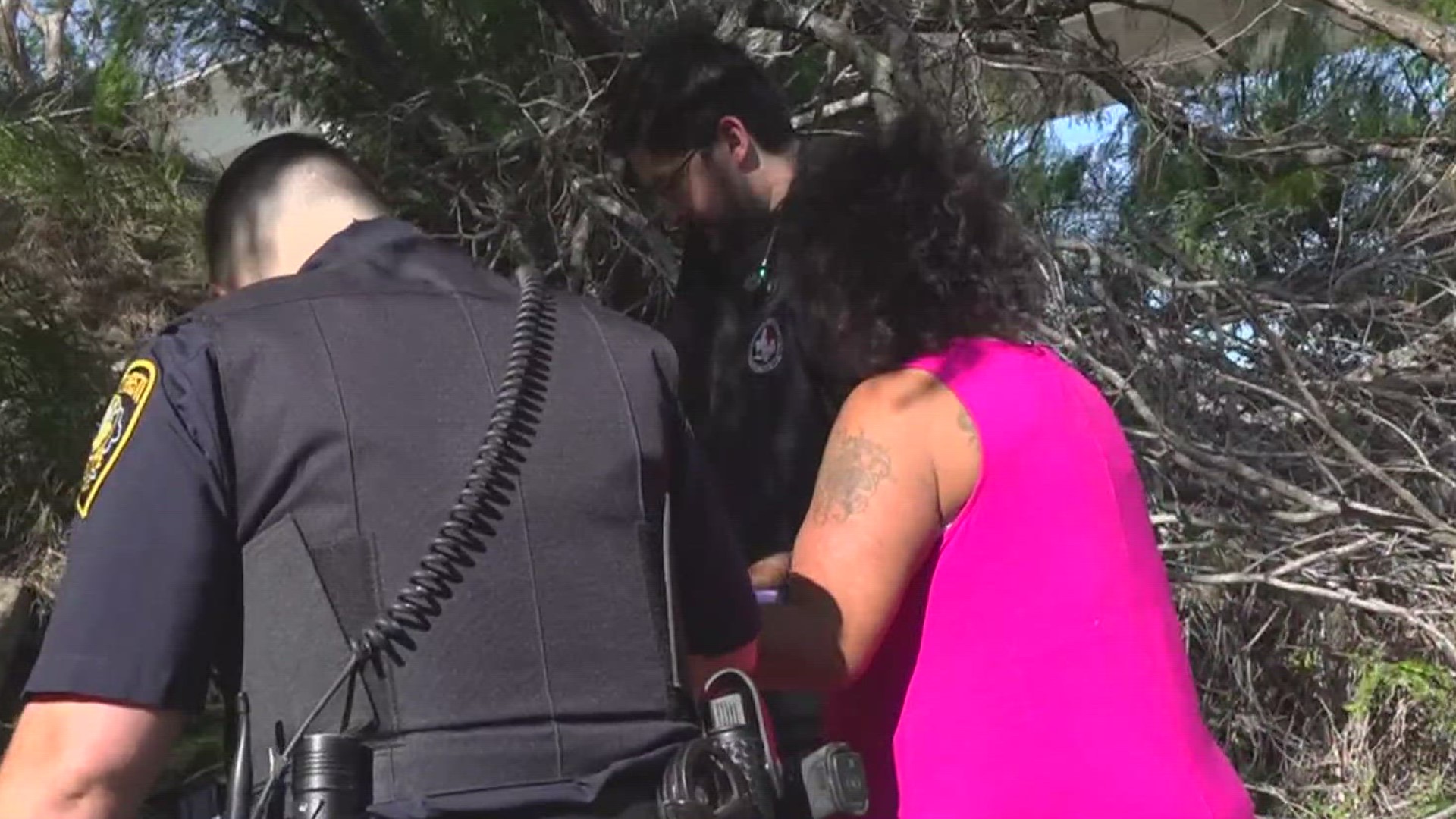CORPUS CHRISTI, Texas — It's a unique program through the Corpus Christi Police Department that is helping individuals experiencing homelessness connect with the resources they need.
The fairly new outreach initiative also includes a partnership with the Corpus Christi Emergency Medicine Residency program at CHRISTUS Spohn to provide what's being called, 'Street-Level Medicine.'
It was back in January when CCPD added its very first homeless resource officer to its Crisis Intervention Response Team.
He dresses differently than a traditional police officer would and works with those who are experiencing homelessness. Sometimes, that help means preventative medical care.
It's that behind-the-scenes work you typically don't know is happening until you see it first hand.
You could call it medical care on the go.
Dr. Brook Danboise and Rogelio Martinez went to the Mother Teresa Shelter to meet their first patient of the day named Robert.
Robert lifted up his pant leg to reveal an inflamed knee.
"It's like someone injected soup into it or something," he said.
Danboise took a closer look at the issue.
She's with the Corpus Christi Emergency Medicine Residency program at CHRISTUS Spohn and is part of the new pilot program, taking to the streets.
Martinez is also part of it.
"One of the biggest barriers to care among the homeless population is access," Martinez said. "Just getting out to them and providing recommendations whether that is, 'hey you need to go to the hospital' or 'hey we're going to put you in a clinic in the community.'"
He said the outreach is helping bridge the gap to access care and focuses on prevention and intervention so this way, they don't end up in the emergency room.
"What we see in the emergency department shows there are individuals out there who don't have access, don't have resources and so being able to go out there to them as opposed to waiting for them come to us is important," Martinez said.
They're able to perform vitals, wound care and provide medical recommendations.
Arthur Brown is the CCPD's first homeless resource officer.
"We can't solve the issue of homelessness, but we can help the individuals," Brown said.
His job is to help navigate homeless toward resources whatever those needs might be mentally or physically.
"I find that the most important part in helping people is to address these issues individually," Brown said.
Assistant Chief Mark Schauer with CCPD said there are a lot of people who experience homelessness and who are chronic campers, meaning they are outside.
"Who do have emotional problems, substance abuse, alcoholism; if we can help them find their way and get them reconnected, that is what we would like to do," Schauer said.
Robert told 3NEWS he is grateful for the care.
"This is for real, real medical assistance on site, we're not going to go to the hospital unless we're dragged there," he said.
He was given some Ibuprofen and advice.
3NEWS followed CCPD to their next site, a remote area under the new Harbor Bridge.
The group headed into the thick brush where they came across a homeless encampment and found an elderly woman by the name of Tonya.
She had already lost her toes to diabetes and was experiencing foot pain.
The medical professionals cleaned and dressed her wound. The police department gave her a walker to help her get around.
"It's going to be hard for her to go several miles to come see us in the emergency department, not a great way to call EMS or medics, and right now just by doing some basic dressing or bandages we keep her from being admitted from a horrible infection," Danboise said.
Tonya said she appreciated the care and said, "sometimes it's hard to trust anybody."
It's because of that, why the outreach is so necessary.
"There is a reluctance on a lot of individuals, understandably so," Brown said "When we do this medical-based outreach sometimes it serves as an ice breaker to help, not just talking about help, but providing the help."
In addition to the Spohn Emergency Residency program, CCPD also teams up with folks at Metro Ministries, MHID, Cenikor, Veteran Affairs and many more.
The medical team goes out at least once a week wherever they're needed.

